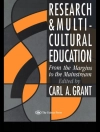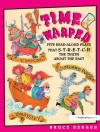Suppose you were given two qualitative studies: one is a piece of empirically sound social science and the other, though interesting and beautifully written, is not. How would you tell the difference?
Qualitative Literacy presents criteria to assess qualitative research methods such as in-depth interviewing and participant observation. Qualitative research is indispensable to the study of inequality, poverty, education, public health, immigration, the family, and criminal justice. Each of the hundreds of ethnographic and interview studies published yearly on these issues is scientifically either sound or unsound. This guide provides social scientists, researchers, students, evaluators, policy makers, and journalists with the tools needed to identify and evaluate quality in field research.
Spis treści
CONTENTS
Preface
Introduction
1 Cognitive Empathy
2 Heterogeneity
3 Palpability
4 Follow-Up
5 Self-Awareness
Conclusion
Acknowledgments
Appendix: A Note on Proposals
Notes
References
Index
O autorze
Mario Luis Small is Quetelet Professor of Social Science at Columbia University. He is an expert on inequality, poverty, networks, and the relationship between qualitative and quantitative methods. His most recent books include Unanticipated Gains: Origins of Network Inequality in Everyday Life, Someone To Talk To: How Networks Matter in Practice, and Personal Networks: Classic Readings and New Directions in Egocentric Analysis.Jessica Mc Crory Calarco is Associate Professor of Sociology at Indiana University. She is an expert on inequalities in family life and education, as well as on qualitative methods. She is the author of Negotiating Opportunities: How the Middle Class Secures Advantages in School and A Field Guide to Grad School: Uncovering the Hidden Curriculum.












